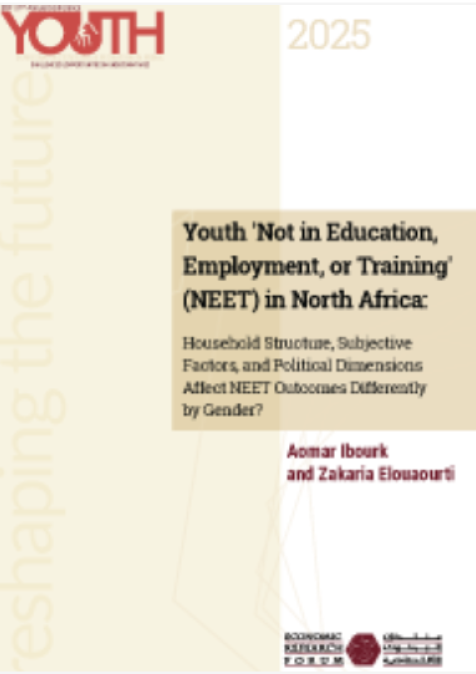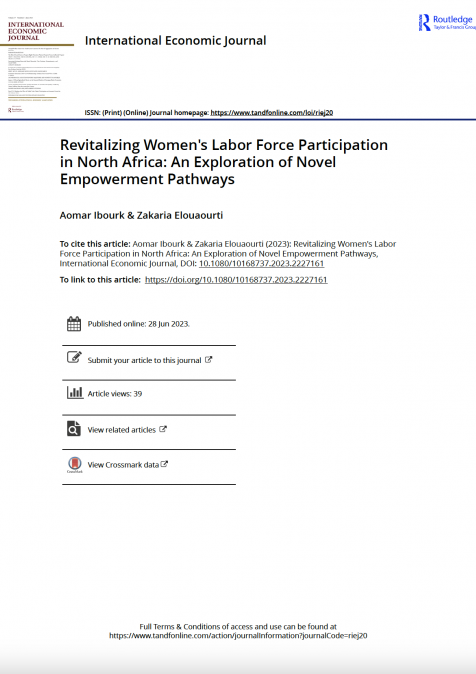Publications /
Paper in Academic Journals
This paper was originaly published on erf.org.eg
Youth's life paths have become increasingly challenging, especially for those classified as "Not in Education, Employment, or Training" (NEET), who comprise 31.2% of North Africa's youth population. The region faces high youth unemployment rates, with 22.3% in 2023, rising slightly to 22.5% in 2024, and projected to return to 22.3% in 2025 (ILO, 2024). Notably, North African youth not only exhibit the highest desire to migrate within the MENA region but also demonstrate a significant disparity compared to the older generation's inclination to do so, particularly in Morocco (70% youth vs. 25% older). Similarly, more than half of the youth in Tunisia (56% vs. 25%), Algeria (56% vs. 21%), and Egypt (49% vs. 16%) express a desire to leave their respective countries (Arab Barometer, 2019). This paper aims to contribute to the ongoing debate and propose solutions to the phenomenon of NEET youth in the North African region by examining how household structure, subjective factors, and political dimensions influence their circumstances, with particular emphasis on gender. A comprehensive microeconomic database comprising 7,815 youth aged 15 to 29 years old from Morocco, Egypt, Tunisia, and Algeria is utilized, employing a Logit-type binary choice model. The empirical findings indicate that gender does not significantly impact the outcomes of North African NEETs. However, residing in urban areas reduces the likelihood of being classified as NEET. In contrast, having a higher level of education does not necessarily prevent NEET status among Egyptian, Moroccan, and Tunisian youth. Additionally, household structure plays a crucial role in determining the likelihood of youth being classified as NEET, with the probability decreasing as the number of employed individuals and those with higher education within the household increases. Policymakers in the North African region should prioritize the moralization of political life and the enhancement of institutional quality. Additionally, authorities in higher education and the labor market must ensure a better alignment between the supply of higher education systems and the demands of the job market in North African countries.












